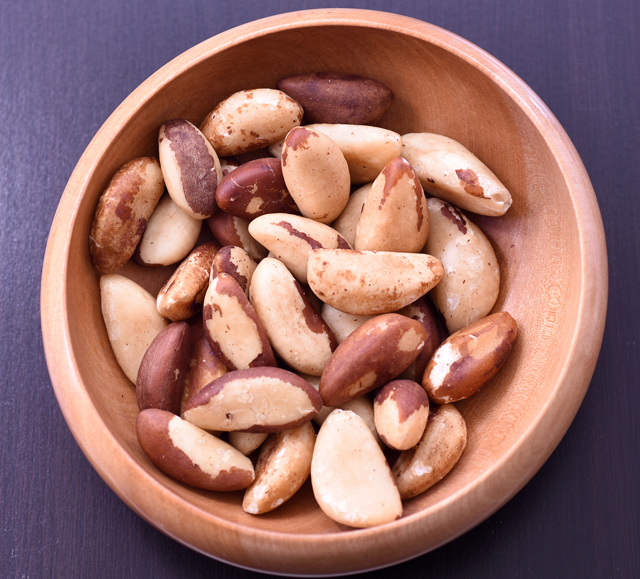Preventing muscle atrophy in those with diabetes: Animal study reveals tocotrienols can increase skeletal muscle weight
09/30/2019 / By Melissa Smith

People with diabetes are at risk of various health complications, including muscle atrophy. A new study suggests taking tocotrienols can help increase skeletal muscle weight and prevent muscle atrophy. For this study, which was published in The Journal of Nutritional Biochemistry, researchers looked at tocotrienols (vitamin E) derived from the red-orange tropical fruit known as annatto.
Researchers from Texas Tech University investigated the synergistic effects of supplementing annatto tocotrienols with green tea polyphenols in mice with chronic disease. To do so, they divided the mice into four groups: a control group, a group supplemented with tocotrienols, a group supplemented with green tea, and a group supplemented with both tocotrienols and green tea polyphenols. They also fed all mice with a high-fat diet to induce obesity, so that they can examine the effects of the ingredients in the obese population. The treatments were given to mice every day for 14 weeks.
The treatments showed some synergistic effects on the mice that received both tocotrienols and green tea polyphenols, such as improvement in glucose tolerance. The researchers also found a counteracting effect. Supplementation with tocotrienol caused citrate synthase, a process in which muscle fiber in the shins increased. However, when green tea was combined with tocotrienol, this effect was negated.
Nonetheless, the team suggested that tocotrienols and green tea polyphenols together have a therapeutic potential to protect against muscle atrophy, which is common among individuals with insulin resistance and high blood sugar.
Tocotrienols, the ideal supplement for diabetics
There are more reasons for people with diabetes to increase their tocotrienol intake. A study published in the journal Nutrients found that tocotrienols can help improve their kidney health, especially since kidney damage – or nephropathy – is one of the common complications of diabetes.
For this study, researchers from Monash University Malaysia recruited 45 participants between 18 and 80 years old with Type 2 diabetes. The participants received either 400 mg of tocotrienols or a placebo twice a day for eight weeks. The supplementation with tocotrienol significantly reduced creatinine, which is a chemical waste product produced when the muscles are used. From the muscles, creatinine is transported to the kidney to be filtered and excreted through urine. However, if excessive creatinine is present in the blood, this means that the kidneys are not working properly. Thus, for this case, the decline in creatinine suggested that tocotrienol supplementation improved diabetes-induced kidney damage.
Other studies also reported that tocotrienols may improve bone health in people with diabetes, who are at an increased risk of various bone and joint disorders – at the same time, regulating blood sugar levels. Both studies used tocotrienols derived from annatto.
The first study, which was conducted by researchers from Universiti Kebangsaan Malaysia, showed that diabetic rats supplemented with tocotrienols had normalized conditions for both anabolism and bone mineral density associated with diabetes. Tocotrienols worked by regulating hormone levels and inflammatory response.
The second study was carried out by researchers at Texas Tech University. In this study, the researchers compared different doses of tocotrienol with metformin, a commonly prescribed anti-diabetic drug. They found that higher tocotrienol dose was more effective than metformin in increasing bone formation and trabecular volume, as well as reducing bone resorption and trabecular separation. The lower tocotrienol dose was just as effective as metformin in improving bone health.
Read more articles about the different health benefits of tocotrienols at Nutrients.news.
Sources include:
Tagged Under: alternative medicine, Annatto, blood sugar, diabetes, diabetes complications, diabetes cures, diabetes science, disease treatments, metabolic syndrome, muscle, muscle atrophy, muscle mass, natural cures, natural medicine, nutrients, prevention, skeletal muscle, supplements, tocotrienol, Type 2 Diabetes, vitamin E
RECENT NEWS & ARTICLES
COPYRIGHT © 2017 NATURAL CURES NEWS



















